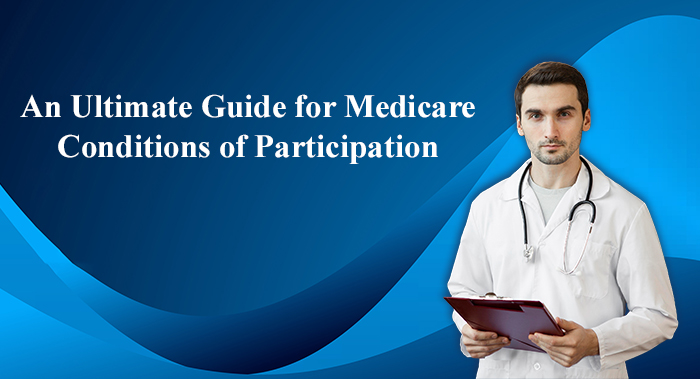
Medicare Conditions of Participation - Ultimate Guide
There are frequent healthcare subjects that have been changed by the Centers for Medicare & Medicaid Services (CMS) following recent amendments and technological changes. CoPs (conditions of participation) also lie in the category of ongoing priority witnessing many changes and guidelines for the CRNAs and healthcare supervisions.
Let's scroll down and find the key information before indulging in the recent changes in Medicare Conditions of Participation (CoPs).
What are CoPs?
Medicare Conditions of Participation or CoP are federal qualifications established by CMS in which distinct healthcare organizations facilities must comply to participate in federally funded healthcare programs such as Medicare, Medicaid, CHIPS, etc. It's the responsibility of SAs (State survey agencies) to ensure all healthcare facilities must comply with CMS Conditions of Participation (CoP). These agencies are also responsible for checking the eligibility of participation in the Medicare program and the audit of the Joint Commission on the Accreditation of Hospital Organizations (JCAHO). They use CMS interpretive guidelines to ensure all the healthcare facilities' compliance with the CoP.
As per the reports of the Government Accountability Office (GAO), SAs has annually surveyed 5% of hospitals and healthcare facilities provided by them, which ultimately increased the scrutiny. In 2004, CMS published the interpretive guidelines online that increased its importance for Certified Registered Nurse Anesthetists (CRNAs) and hospitals. However, CoP compliance is crucial as it ensures the high-quality care and safety of patients.
CoPs Establishment
CoPs were formed to harmonize state licensing standards and provide minimal health and safety standards for healthcare organizations across the nation. The main focus of CoPs prior to 1986 was on "structure over process measures" such as staff qualifications, written policies and procedures, and committee structure, which were typically specified at the standard level. For instance, a typical provision was a requirement for regular attempts to assess, analyze, and evaluate clinical work using an appropriate evaluation method in medical staff meetings. Attendance records for meetings, including reviews of clinical practice at least monthly, were used as explanatory evidence by the surveyors.
1986 saw changes to the situation as a result of the Reagan Era's push for deregulation. Specific changes were revamped, involving eliminating prescriptive criteria that specified qualifications for committees, departments, and other organizational configurations was one of the changes. To provide administrative flexibility, they were replaced with broader declarations of intended performance or outcome. In addition, initiatives like "infection control and surgical and anesthesia services" received additional attention.
Up to one-third of hospitals, particularly those in rural areas, did not take part in the Joint Commission on Accreditation of Hospitals' optional accreditation program. Although one of Medicare's objectives was to increase access to healthcare, it was clear that existing certification programs would not ensure that all institutions met minimal standards for health and safety. A 24-hour nursing service under the supervision of a registered nurse, utilization review planning, institutional planning, and capital planning were therefore included in the Medicare conditions of participation.
Importance of CoPs Compliance
CoPs are defined in many sections, such as sections 1861(e)(1) through 1861(e)(8) of the Act demonstrates the requirements that a hospital must meet to participate in the Medicare program. Moreover, section 1861(e)(9) of the Act requires hospitals to meet other requirements by the Secretary of Health and Human Services (HHS) for patient health and safety. The requirements for Medicare program participation are mentioned in Part 482 regulations by CMS.
To maintain continuous compliance with Medicare and Medicaid guidelines, hospital institutions must frequently evaluate the CoPs. Facilities that don't meet requirements risk exposure from private claims stemming from accusations of maltreatment and neglect. Additionally, any claims for compensation made to Medicare and Medicaid by a hospital that disregards the CoPs will be false. As a result, not only can CMS refuse to pay the institution, but the hospital will also likely be in violation of the False Claims Act, which could result in penalties, fines, and significant legal costs.
Furthermore, if the terms of participation are not followed, the provider may be subject to a range of punishments, including a corrective action plan, financial penalties, and enhanced reporting obligations. Exclusion from the federal healthcare program is possible but unusual, and it only happens when a provider doesn't substantially comply with the regulations throughout the correction time.




